Internet Load-Shedding Options: Buy This, Not That
Jacques du Rand 2022-08-09
Just Tell Me What To Buy For My Budget
Budget: R900 - R2000
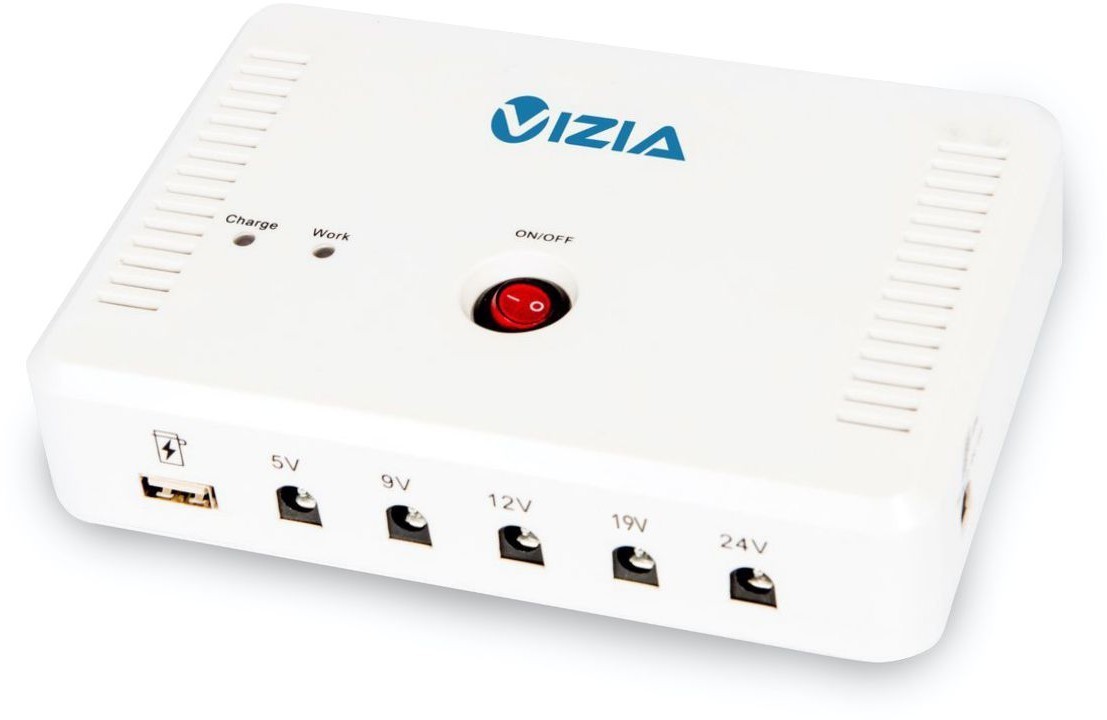
What Can It Power ?
1x Wifi Router
1x ONT Box (fibre)
How Long ?
1x Device ~ 8 hours
2x Devices ~ 4 hours
(%100 lithium battery duty cycle)
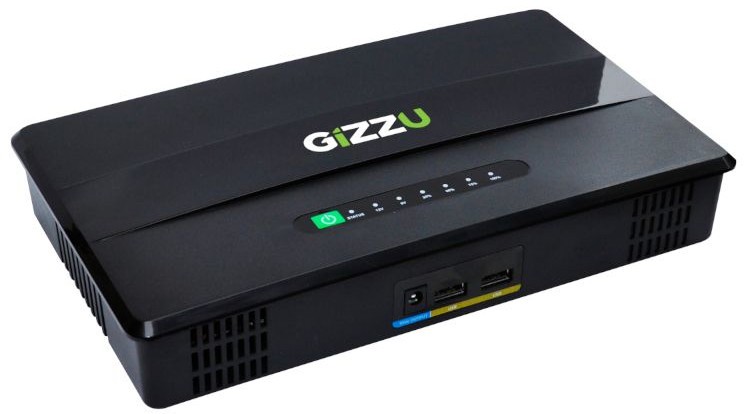
What Can It Power ?
1x Wifi Router
1x ONT Box (fibre)
How Long ?
1x Device ~ 8 hours
2x Devices ~ 4 hours
(%100 lithium battery duty cycle)
Budget: R5000 - R15000
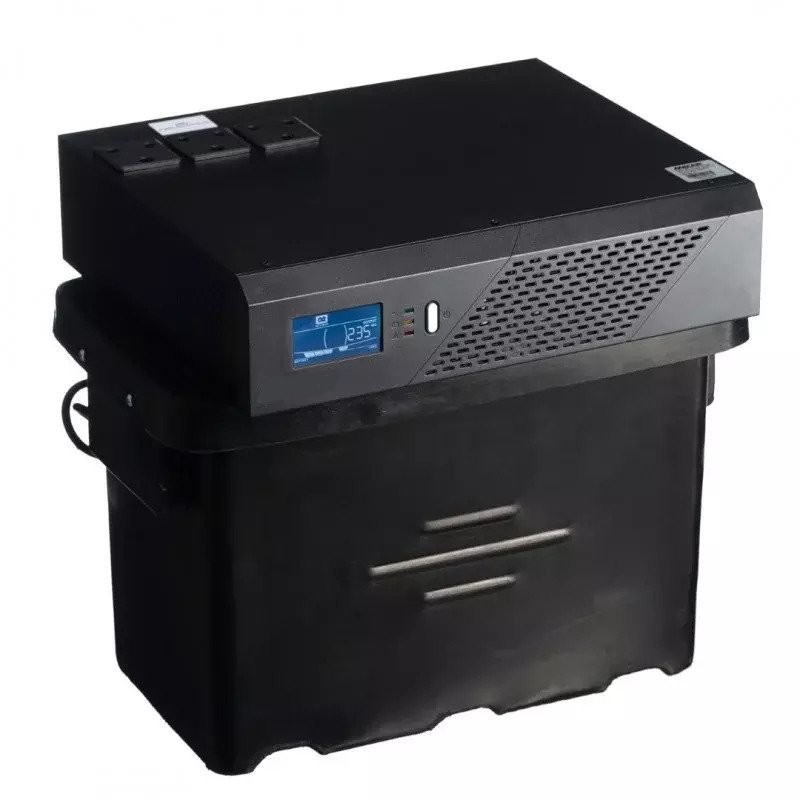
What Can It Power ?
TV (40inch LCD)
Laptop Computer
1x Wifi Router
1x ONT box (fibre)
How Long ?
~ 4 hours
(60% duty cycle of Lead Acid Batteries)
*Assumptions:
- Wifi Router = 12Watts ( 12v @1A)
- ONT Device = 12Watt (12v @1A)
- LCD TV 40 inches = 100 watts
- Laptop = 55W
Tell Me Everything You Know! - The Longer, Detailed Version
I want to know all the facts and make an informed decision
If you want to learn more about what not to buy or why the traditional computer UPS is not the best solution for South Africa's load shedding, then read on.
|
ELi5: Electricity Basics If you know about electricity don't read this, it will upset you
|
A Typical UPS: The Minimum You Should Know:
Most UPS appliances consist of just three parts.
- Battery: Stores energy while you have AC energy and when Eskom curses you into darkness for 3 hours, is the power source for the inverter to make the AC power mentioned above.
- Inverter: DC power (from battery) is converted to AC power.
- Charger: Converts AC to DC to charge the battery.
A 3-point plug point is usually present as well.
Why The "Computer UPS" Doesn't Work For Load-Shedding
The "Computer UPS" sold for your PC and servers were never designed to last 2.5 hours, they were designed to give you time to save your work and do a "graceful shutdown" of your systems. Thus no more than about 10 to 20 min.
Question: "Wait ! What Is A "Computer UPS ?"
Those "bread-shaped boxes" we all bought on Takealot the last few years. They have a socket for a SA 3-pin plug, a noisy fan and keeps beeping at you when the power is off.
They also have the tendency to die a slow death over 6 months when used as a load shedding solution.
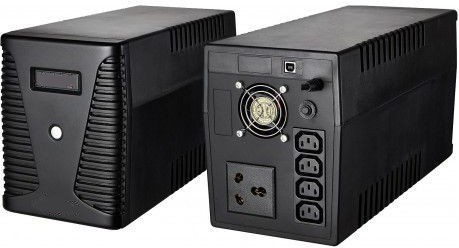
"Computer UPS"
*DISCLAIMER: We are talking mostly about the consumer grade "Computer UPS", not the 5U Rack Enterprise Solutions for big corporations and server cages.
The three main problems when using a Computer UPS to solve your loadshedding problems are:
- Battery Capacity
- Batter Type (Chemistry)
- Inverter Type
-
BATTERY CAPACITY - (How much Eskom power they can store)
Extremely low capacity, your average car battery has about x10 more.
The batteries used in most are rated anything from 4-7AH (amp hours) in terms of capacity.
What Is Battery Capacity And Amp Hours (AH) ?
(AH) Amp hours: Don't worry about what it means for now, just think of it as a way to measure "capacity", like ml or litres for liquids like Coke
Example: A 1L Coke has less Coke (capacity) than a 2L Coke
-
BATTERY TYPE.
-
INVERTER TYPE
Lead acid batteries are the most common type of battery that are used in a UPS.
Their number one disadvantage is that you can only use about 60% of the capacity.
For example: if your battery has a capacity of 100AH, you really only have about 60AH of usable power.
BATTERY TYPE COMPARISON
Think of lead acid batteries vs lithium batteries as the "material" your Coke drink is being served in.
Example: A 500ml Paper Cup (Lead Acid) vs a 500ml Plastic Coke Bottle (Lithium)
The paper cup and the plastic bottle both can "technically" hold 500ml of Coke, but the paper cup will quickly degrade compared to the plastic bottle. And while they are both 500ml, you can really only fill up the paper cup with 300ml of Coke (60%) before it starts to leak
Ok, so we just buy Lithium batteries right ?
Yes, lithium batteries are a better option, but a lot more expensive. However, you can use the full capacity and they usually last longer.
SAFETY NOTE: You can't "just swap in" a lithium battery in place of a lead-acid battery, the charger needs to know and understand that the battery is lithium and not lead acid. If you do, you are probably going to start a nice fire.
POWER DELIVERY - I.E HOW FAST AND HOW MUCH COKE CAN YOU GET OUT PER TIME INSTANT.
While we are talking about batteries, we might as well explain the other metric as well. The power delivery rating is usually specified in Watts. Some items just require more power at a time than others.
Imagine the same Paper Cup and 500ml Coke bottle again:
If you tip them over, how fast before all the Coke is out ? That is in essence the power delivery rating.
The Papercup with the big opening will let the Coke out much faster than the Coke bottle with the very small opening (mouth), even though they are both 500ml.
The inverter used is DC-AC, which is not a problem in itself, but most of your devices require DC power, so you end up converting twice when plugging in your "power supply" (little black power brick) into the UPS and then into the router. What they do is to convert the AC back to DC.
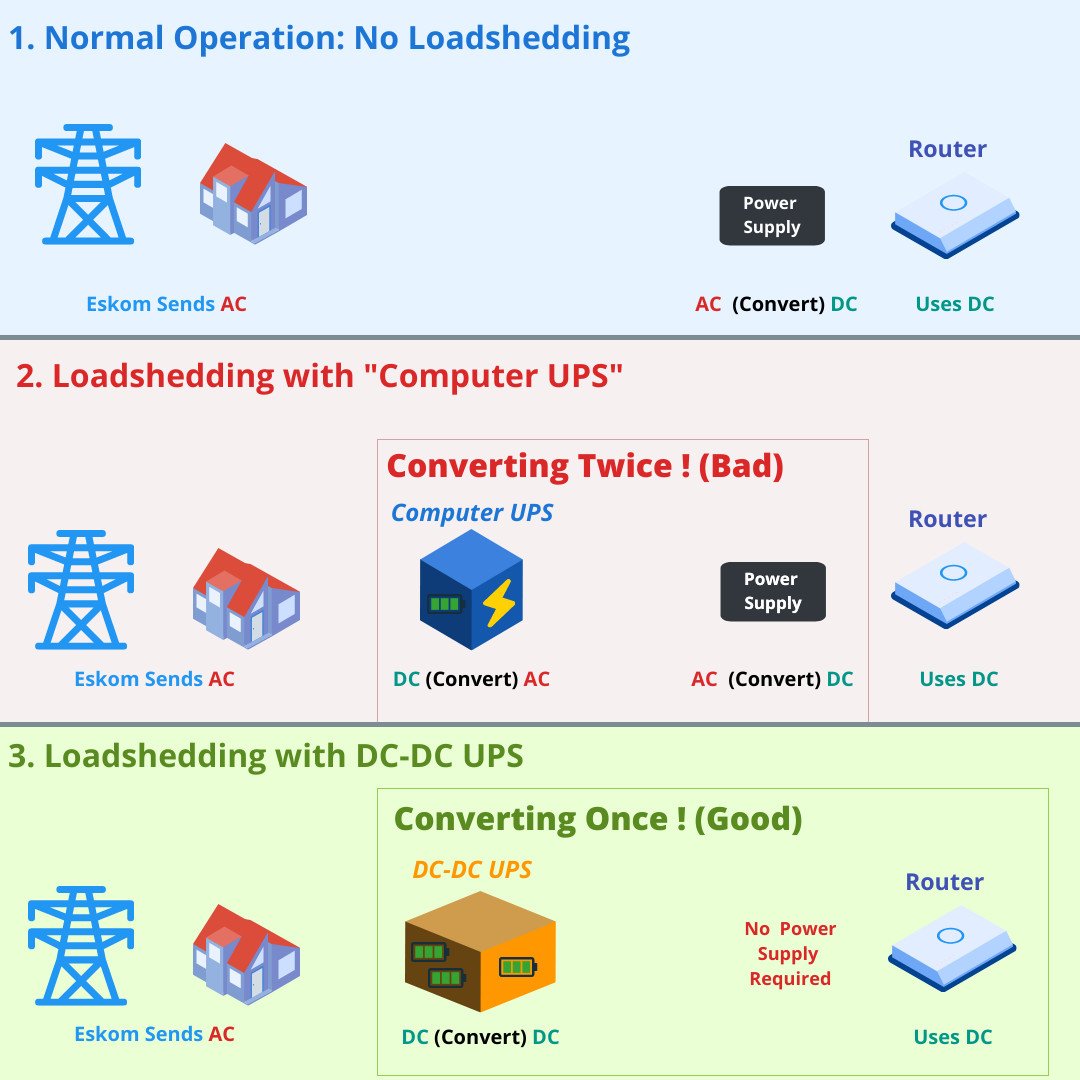
Ok So The "Computer UPS" Is Useless - What Do I Buy Instead ?
Well no. They are not "useless" or "bad products", they just are not designed to be used as load shedding solutions for your mainly DC-based devices.
But you are right in thinking there are better options. Especially if you pick the right solution for each device category.
Option 1: For Small Devices And Budgets Of Less Than R2,000:
DC-DC UPS (Also called WiFi UPS).
These are similar to those "USB Power Banks" we all went crazy over a few years ago. They are perfect for devices like your router, ONT-device (fibre) and one or two cell phone charge cycles. They are also a little cheaper than your average "Computer UPS".
What To Look For in a DC-DC UPS
- Lithium battery.
- DC-DC should be mentioned somewhere.
-
Output Voltage Rating in volts
Most routers require 9v or 12v -
Capacity Rating (> 50,000 mah)
NOT to be confused with the "Power Delivery Rating" -
PS. If it has a place to plug in a 3 point plug, it is probably the wrong one.
Option 2: For a Few Devices (TV, Laptop, Internet) R5,000 - R15,000
Inverter Trolleys / Loadshedding Packages / Standalone Inverters
The best examples of these products are those inverter trolleys or "loadshedding packages" you see advertised everywhere.
They act more like a "traditional UPS" than the DC-DC UPS option.
"Wait, I thought UPS were terrible for load shedding" ?
Yes and no :)
These standalone inverters (with big batteries) or loadshedding packages - does address at least one of the big problems of the traditional Computer UPS.
Bigger Batteries: They come with MUCH larger batteries. They usually start at 100AH (amp hours). I.e How much Coke can the bottle hold ?
BONUS: DC-DC Outputs:
Some even have a direct DC-DC section. I.e a little section where you can plug in your router, cellphone or laptop directly in the inverter.
I.e you DON'T plug your power-supply or phone charger in - you plug in JUST the cable.

